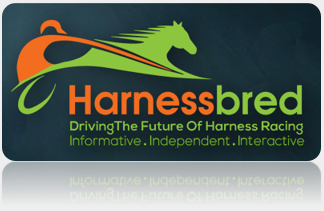As Harness Racing Australia (HRA) have advised in previous Industry Notices, Japanese Encephalitis Virus (JEv) has been detected and confirmed in humans, as well as piggeries in Victoria, Queensland, New South Wales and South Australia.
It seems only a matter of time, before the disease is discovered in horses.
JEv is a viral zoonotic disease that is spread by mosquitoes. The virus can cause reproductive losses and encephalitis in pigs and horses. In rare cases, JEv can cause disease in people.
People and horses are considered ‘dead end’ hosts. Once infected, they do not play a role in transmitting the virus. Pigs and some species of wild birds are amplifying hosts.
Japanese encephalitis disease spread pathway
The JEv disease spread cycle is provided above.
It is not known how the virus came onto mainland Australia, and it is the first time the virus has been detected in southern Australia. The movement of infected mosquitoes or migratory waterbirds may have played a part in the virus’ spread.
In animals, signs of disease are most common in horses and pigs. Other animals can be infected but typically do not show signs of illness, such as cattle, sheep, goats, dogs, cats, bats, rodents, reptiles, amphibians and birds.
Signs of JEv in horses
Symptoms in horses are usually mild and signs of the disease include high temperature, jaundice, lethargy, anorexia and neurological signs which can vary in severity.
Neurological signs can include incoordination, difficulty swallowing, impaired vision, and rarely, the horse becomes over excited. Reports of the disease in other species are rare, but there are cases reported in donkeys overseas.
Horses are known to be a ‘dead end host’. They do not carry a blood infection that will reinfect mosquitoes.
Nationally Notifiable Disease
JEv is a nationally notifiable disease which means if you suspect an animal (not just a horse) is showing signs of the disease, you must report it.
You can do this by contacting your local veterinarian or call the national Emergency Animal Disease Hotline on 1800 675 888. This will put you in touch with your State or Territory’s agriculture department.
You should also notify your State Controlling Body.
Advice for Industry Participants and Owners
Putting a hooded rug and fly mask on your horse can help protect against mosquito bites. Where available, stabling horses between dusk and dawn may also be beneficial. For horses not stabled overnight, rugging and hooding with lightweight permethrin fabric may help protect them.
If the horse allows, apply a safe insect repellent. To apply the repellent to the horse’s face and ears, spray it onto a cloth and rub it on, avoiding around and above the eyes.
Human Health Advice
Most Japanese encephalitis virus infections in people are asymptomatic, however, those with severe infection (which occurs in less than one per cent of cases) may experience neck stiffness, coma, and more rarely, permanent neurological complications or death.
Encephalitis is the most serious clinical consequence of infection. Illness usually begins with symptoms such as sudden onset of fever, headache and vomiting. Anyone experiencing these symptoms should seek urgent medical attention.
People should try to prevent mosquito bites by using mosquito repellent containing picaridin, DEET or oil of lemon eucalyptus on all exposed skin and reapply every few hours.
Wear long, light coloured and loose-fitting clothing as well as covered footwear when outside. Ensure accommodation, including tents, are properly fitted with mosquito nettings or screens.
For updates on human health impacts visit Australian Government Department of Health
Harness Racing Australia (HRA) Activities
As JEv is an emergency animal disease, HRA represents the industry as part of the government’s national health and agriculture response, meeting formally and informally in a variety of forums – often multiple times a day to provide advice, as well as protection and a voice for all sectors of the harness racing industry.
The current active critical elements to the response include:
- Vaccination (for people and horses) – not just for health and welfare, but the knock-on effects of trade, particularly with NZ.
- Communications.
- Surveillance/Vector Control.
While the vast majority of the discussions are confidential, HRA continues to keep its Members well informed, and when able, provide information to the wider industry.
For now, the most critical message to the industry is to heed the advice and take precautions to mitigate both yourself and your horses from being bitten by mosquitos – which can be difficult when feeding horse at dawn and dusk coincides with mosquito activity.
It may sound simple, but stabling, rugging, hooding and insect repellents are steps everyone can take for protection.
Approved By Dean Baring www.harnessbred.com
Driving The Future Of Harness Racing

